Final Day of the Central Committee Plenum
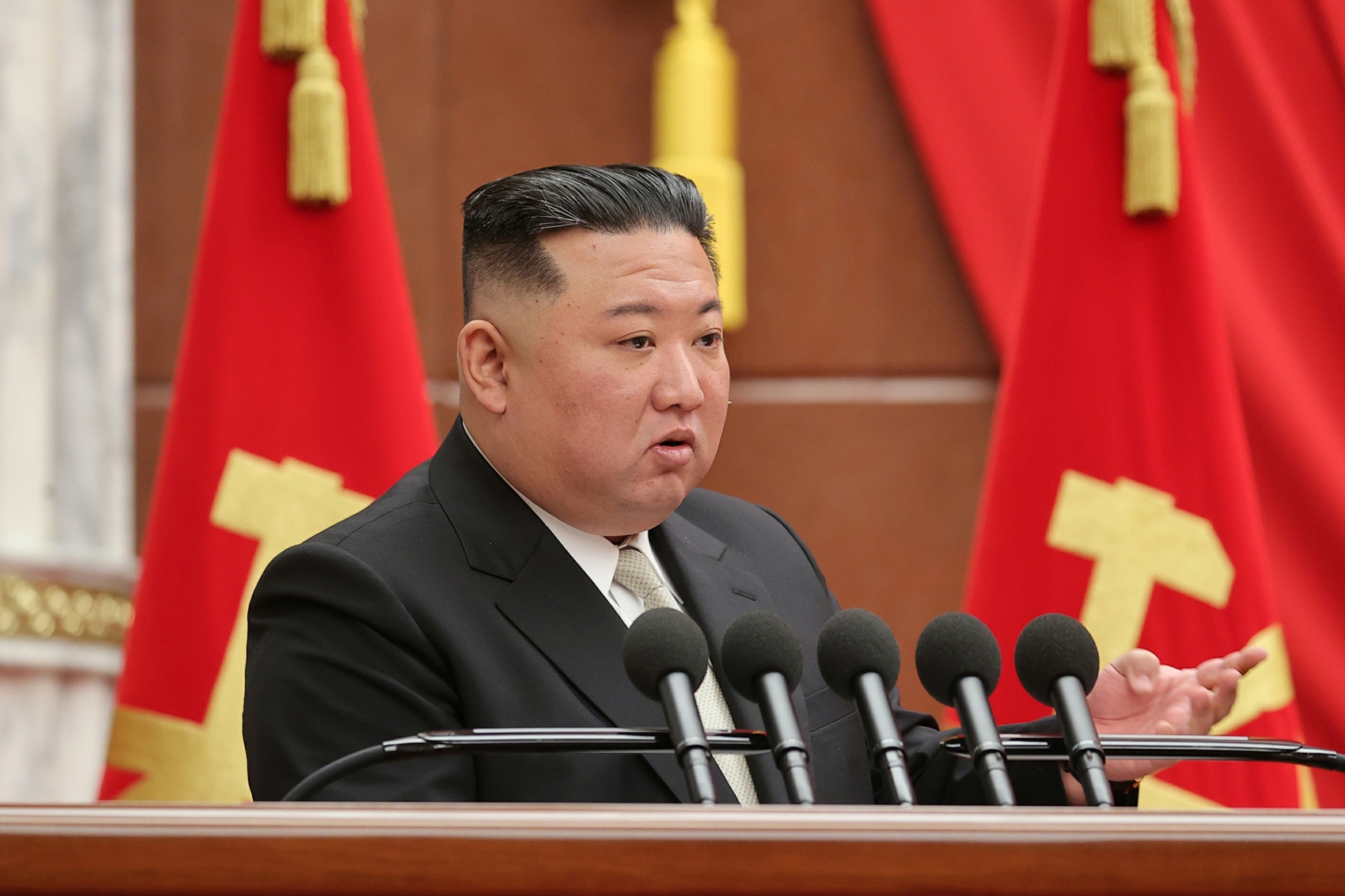
The fourth and final day of the 7th plenary meeting of the 8th Workers’ Party of Korea [WPK] Central Committee was held at the conference hall of the Central Committee Office Building on 1 March (Wednesday).
The plenum was held in the context of the WPK “leading the revolutionary struggle to a new victory while overcoming the harsh situation, invariably holding aloft the banner of independence in politics, self-sustenance in the economy and self-reliance in national defense…this struggle is the greatest cause of making a fresh change and development in the course of certainly building Korean-style socialism, in which all the people live with nothing to envy.”
The Central Committee “is bringing earlier the future of socialist construction in our own way and with our own efforts from A to Z, set forth a medium- and long-term strategy for the final solution of the rural question assuming the protracted and multi-faceted character at the historic Plenary Meeting in December Chuch’e 110 (2021)” and “setting a grand economic development goal for national prosperity, it has confidently led the purposeful and phases struggle for its realization.”
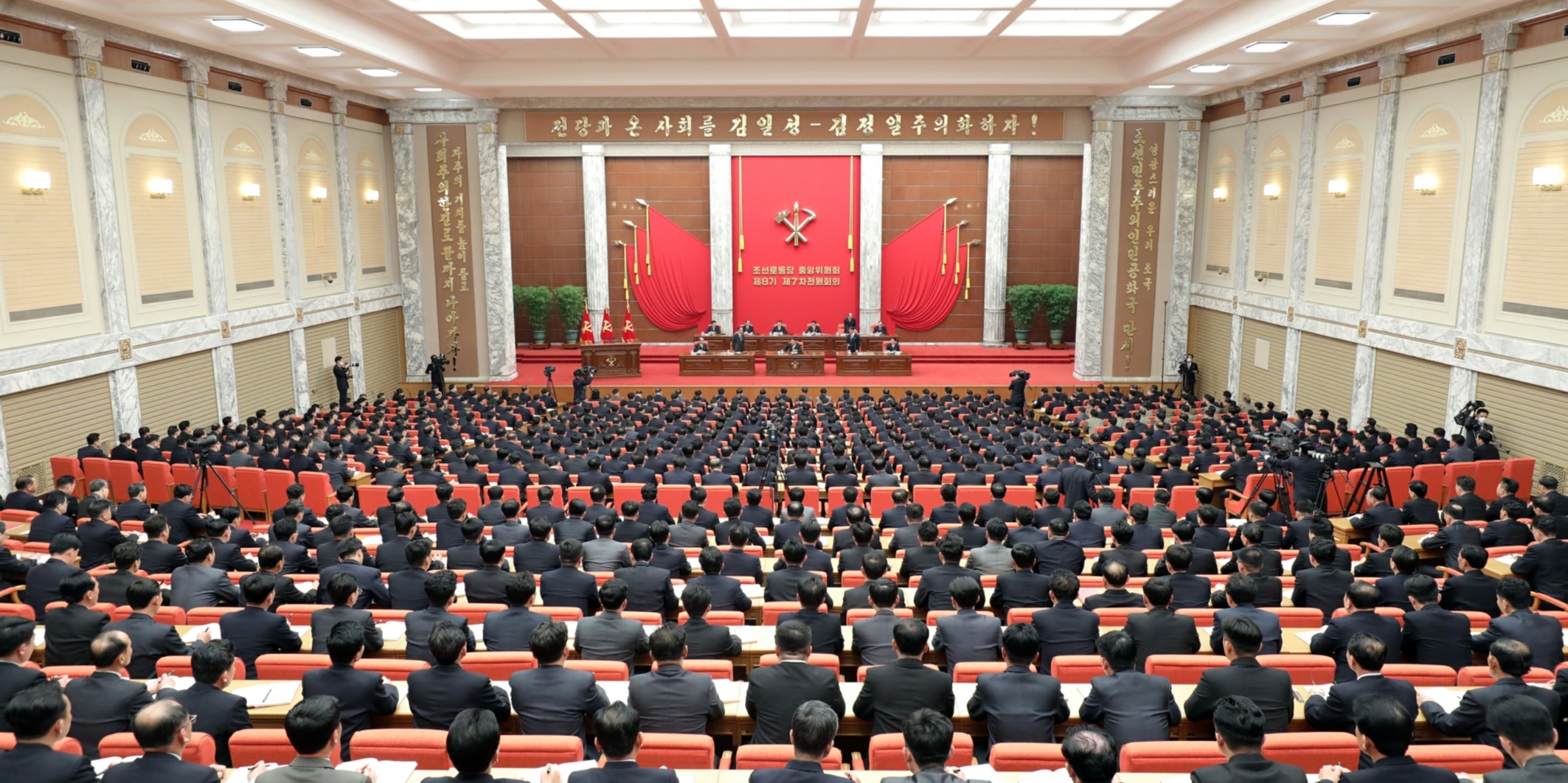
On the plenum’s third day, meeting participants participated in a sideline policy meetings which were guided by WPK and DPRK Government cadres. The meeting “divided into eight sections, heard open, innovative, progressive opinions based on deep study of agenda-related issues according to the main idea of the historic concluding speech and worked out scientific measures, substantial operational plans, of which feasibility, has been thoroughly examined through serious discussion.” The results of these sectional meetings were forwarded as draft resolutions to the Political Bureau.
Prior to the Central Committee plenum’s last session on 1 March (Wednesday), the Political Bureau “examined the draft resolution reflecting new goals and ways for attaining them to bring about fundamental innovations and substantial change and development in agricultural production and economic construction.” The resolutions were presented to the full Central Committee.
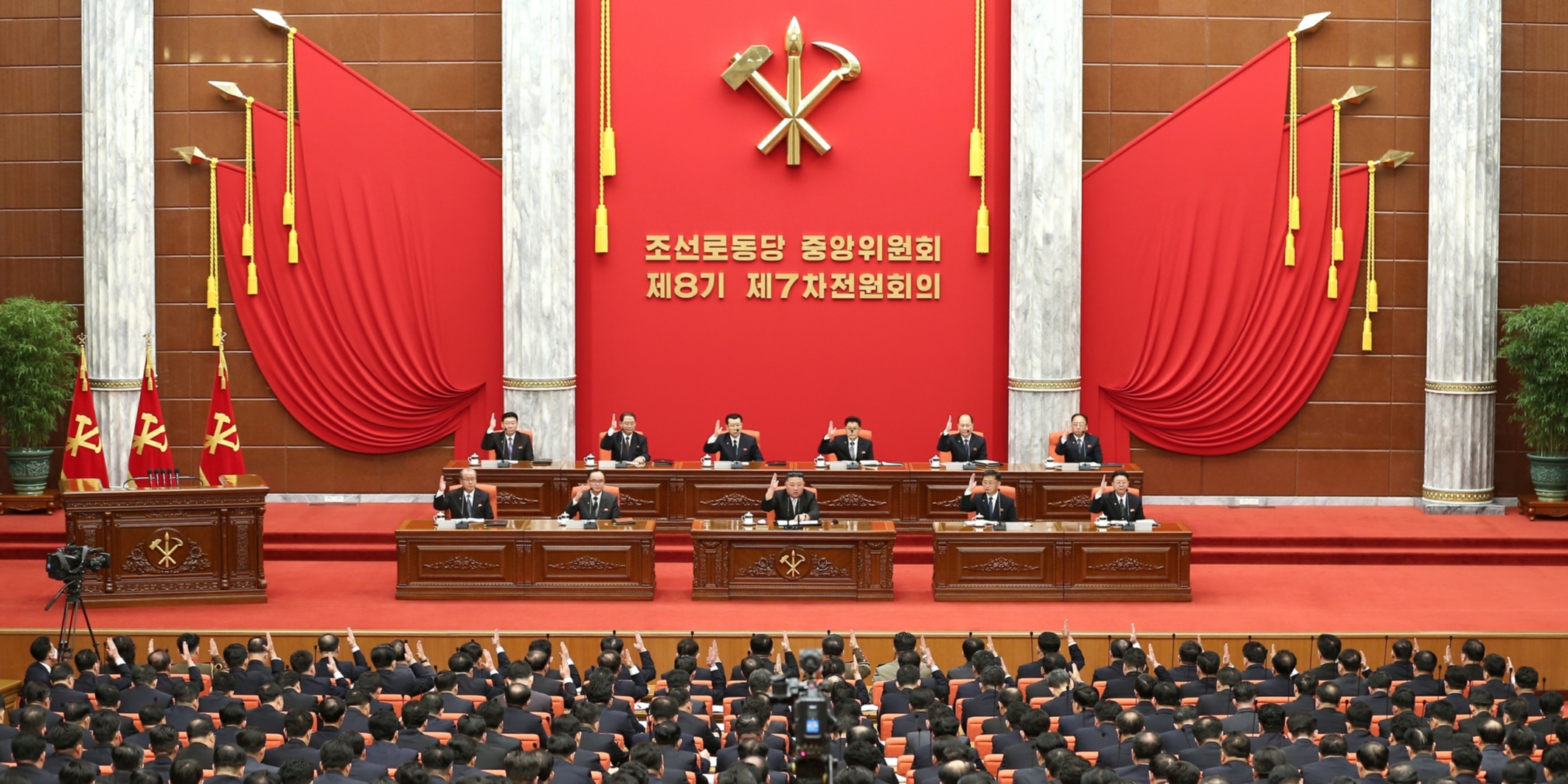
The final session of the 7th plenary meeting convened with Kim Jong Un (Kim Cho’ng-u’n; KJU) in attendance and presiding over the meeting. Joining him on the platform as plenum presidium members were DPRK Premier Kim Tok Hun (Kim Tok-hun), WPK Secretary for Organizational Affairs Jo Yong Won (Cho Yo’ng-wo’n), WPK Secretary for Propaganda and Agitation (publicity and information) Ri Il Hwan (Ri Il-hwan), WPK Secretary for Military Affairs Ri Yong Gil (Ri Yo’ng-kil), WPK Secretary for Science and Education Pak Thae Song (Pak T’ae-so’ng), WPK Secretary for Economic Affairs Jon Hyon Chol (Cho’n Hyon-ch’o’l), WPK Agriculture Department Director Ri Chol Man (Ri Ch’o’l-man), WPK Central Auditing Commission Chairman Kim Jae Ryong (Kim Ch’ae-ryong), DPRK Vice Premier and State Planning Commission Chairman Pak Jong Gun (Pak Chong-kun) and DPRK Vice Premier and Agriculture Commission Chairman Ju Chol Gyu (Chu Ch’o’l-kyu).
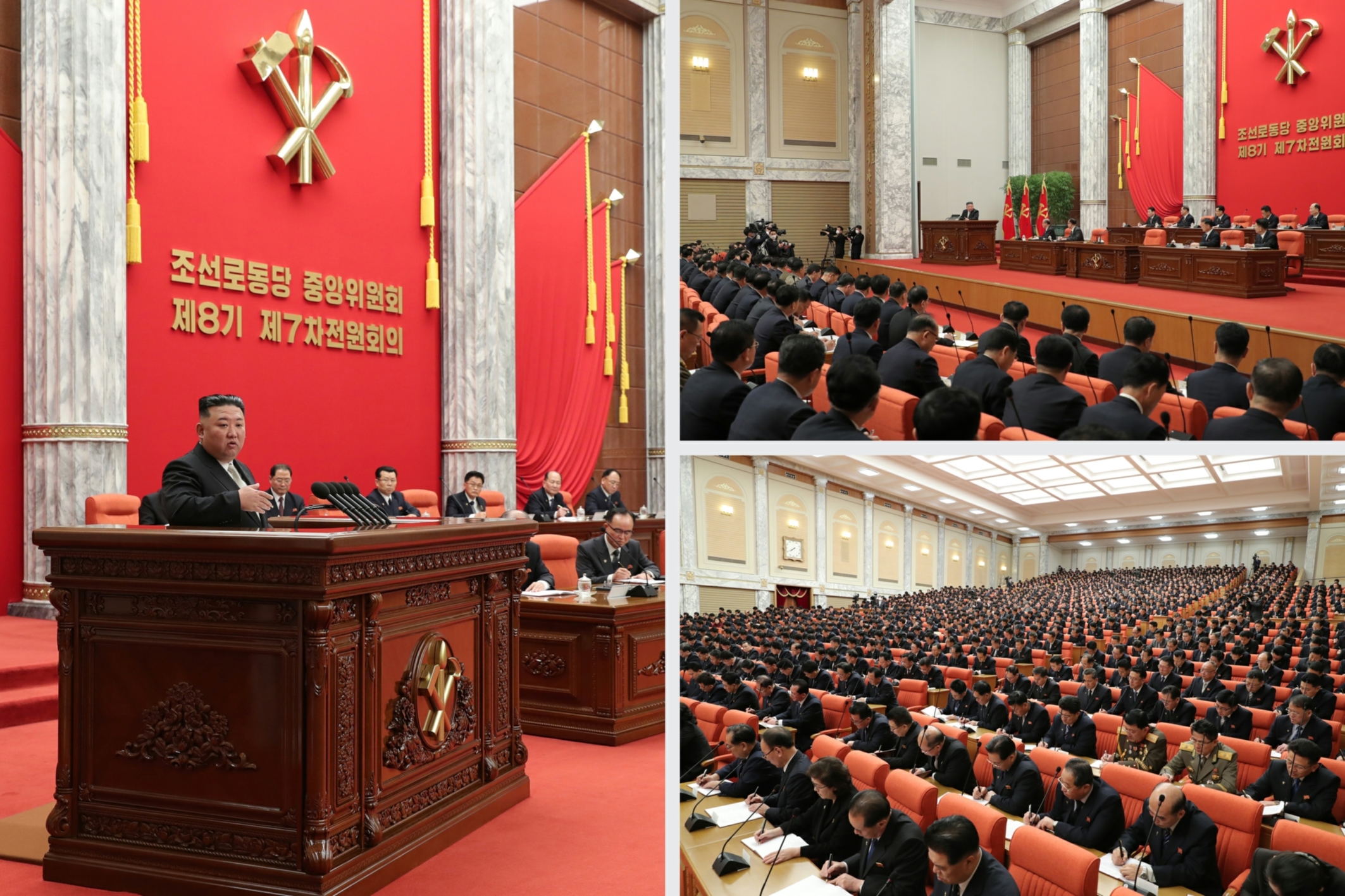
In attendance were WPK Central Committee members and alternate (candidate) members, Central Committee Department Directors and deputy directors, DPRK Cabinet officials, representatives of Cabinet Ministries and national institutions, leading cadres and functionaries of WPK provincial, city and county committees and People’s Committees, and various cadres and managers in the agricultural sector including: Pyongyang City WPK Committee Chief Secretary Kim Su Gil (Kim Su-kil), Minister of National Defense Kang Sun Nam (Kang Sun-nam), WPK Organization Guidance Department Senior Deputy Director Ri Hi Yong (Ri Hi-yo’ng), WPK Organization Guidance Senior Deputy Director Kim Jo Guk (Kim Cho-kuk), WPK Propaganda and Agitation [PAD] deputy director Kim Yo Jong (Kim Yo’-cho’ng), North P’yo’ngan Provincial WPK Committee Chief Secretary Mun Kyong Dok (Mun Kyo’ng-tok), PAD deputy director Hyon Song Wol (Hyon So’ng-wol), WPK Civil Defense Department Director O Il Jong (O Il-cho’ng), DPRK Foreign Minister Choe Son Hui (Ch’oe So’n-hu’i), WPK Finance and Accounting Department Director Kim Yong Su (Kim Yo’ng-su), Korean People’s Army [KPA] General Political Bureau Director Jong Kyong Thaek (Cho’ng Kyo’ng-t’aek), Chief of the KPA General Staff Pak Su Il (Pak Su-il), Minister of Public Security Ri Thae Sop (Ri T’ae-sop), WPK Munitions Industry Department Director Jo Chun Ryong (Cho Ch’un-ryong), WPK International Affairs Department Director Kim Song Nam (Kim So’ng-nam), WPK Light Industry Department Director Han Kwang Sang (Han Kwang-sang), WPK Discipline Investigation Department Director Kim Sang Gun (Kim Sang-kun), WPK Party History Institute Director Ri Hye Jong (Ri Hye-cho’ng) and WPK United Front Department Director Ri Son Gwon (Ri Son-kwon).
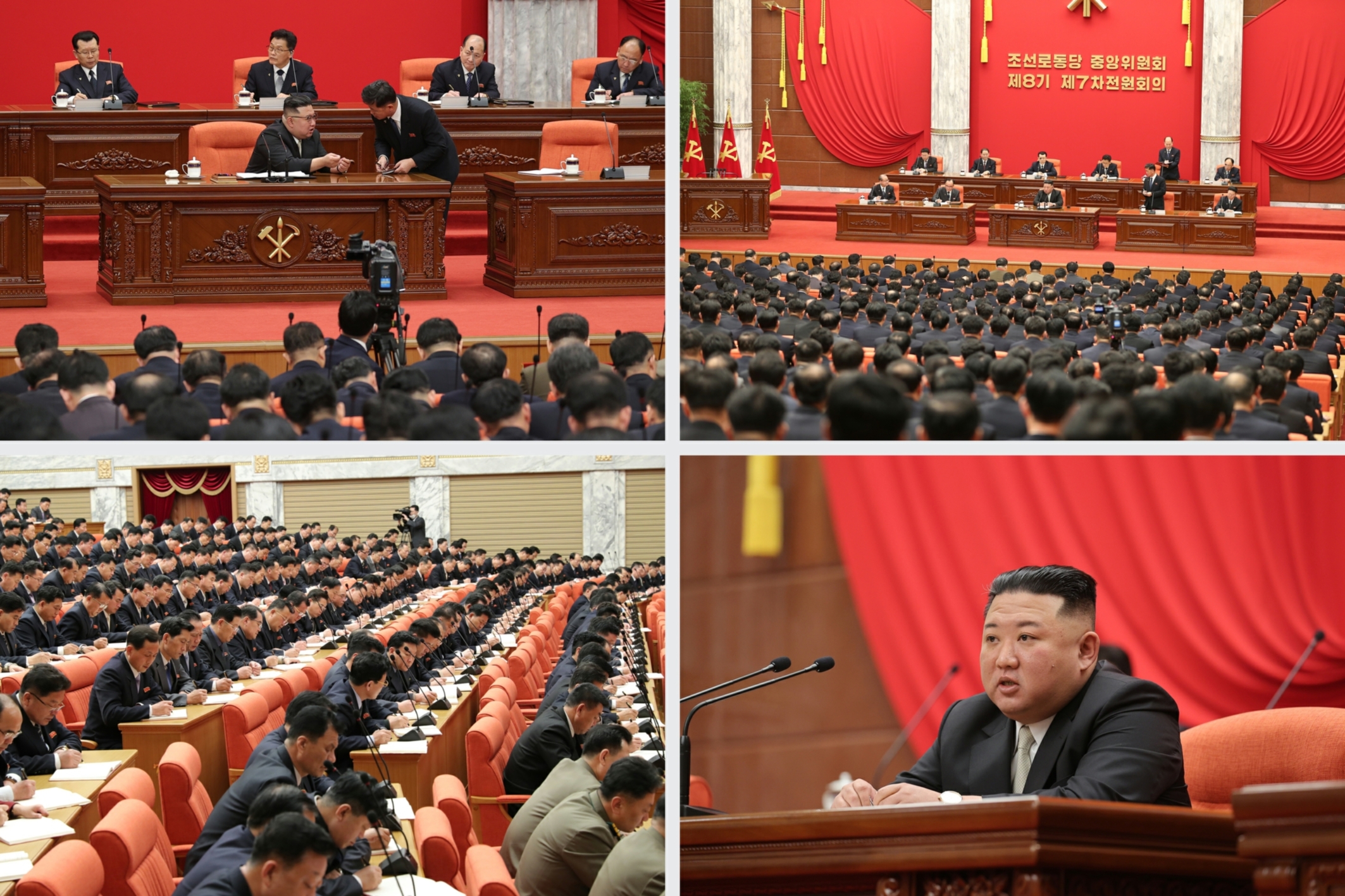
The plenary meeting approved “the development-oriented resolution for brilliantly materializing the great program for socialist rural revolution.” The Central Committee also approved “an important issue for developing the economy” and approved and revised parts of the resolutions approved during the Central Committee plenum in December.
The Central Committee plenum then took up personnel affairs. Kim Song Jun (Kim So’ng-chun) was elevated from WPK Central Committee alternate (candidate) member to full membership. Choe Tong Myong (Ch’oe Tong-myo’ng), An Kum Chol (An Kum-ch’o’l), Choe Kun Yong (Ch’oe Ku’n-yo’ng) and Jong Myong Do (Cho’ng Myo’ng-to) were elected full members of the Central Committee. Elected as alternate members were Kim Kwang Un (Kim Kwang-u’n), Jang Yong Chol (Chang Yo’ng-ch’o’l) and Sonu Yong Hyok (So’nu Yo’ng-hyok).
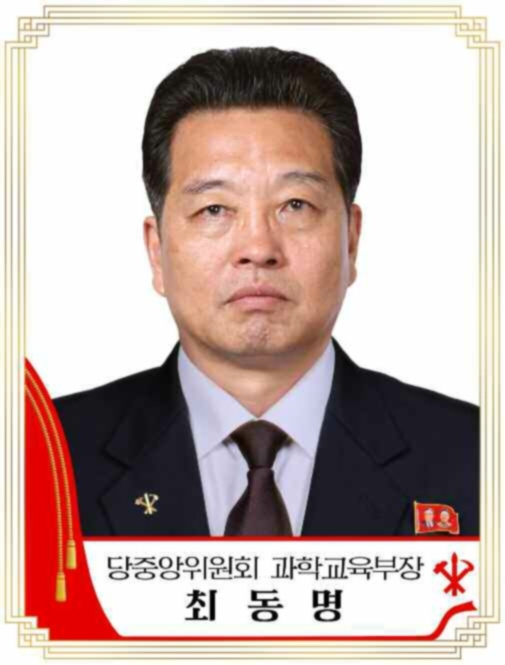
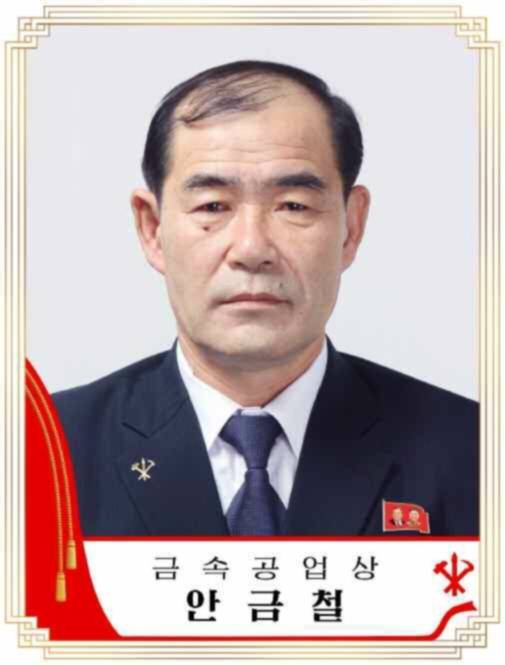
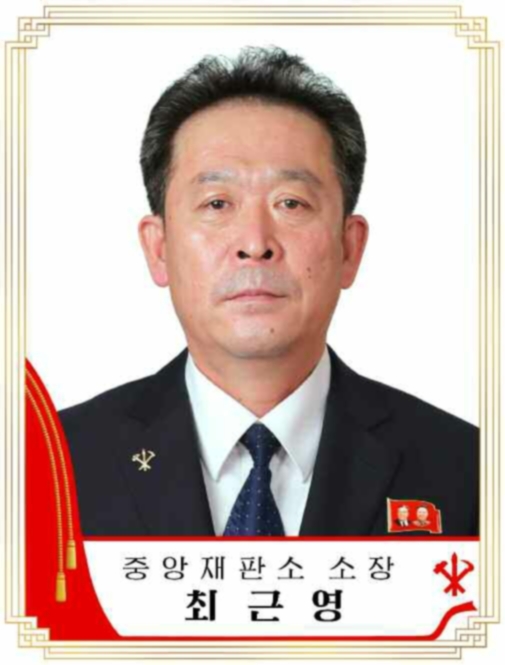
Choe Tong Myong was appointed WPK Central Committee Science Education Department [SED], replacing Ri Chung Gil (Ri Chung-kil). An Kum Chol (An Ku’m-ch’o’l), who previously served as Chief Secretary of the South P’yo’ngan WPK Provincial Committee, was appointed Minister of Metallurgical Industry. Choe Kun Yong (Ch’oe Ku’n-yo’ng) was appointed President of the DPRK Central Court replacing Cha Myong Nam (Cha Myo’ng-nam).
KJU made a speech to close out the 7th plenary meeting. He noted that the plenum “is of great significance in the struggle of our Party and people” and said that that the meeting “set more definite proposals for decisively putting agriculture, one of the two major fields of socialist economic construction on a stable and sustained development track in a few years to come and provided a turning point for accelerating the overall prosperity of the state.”
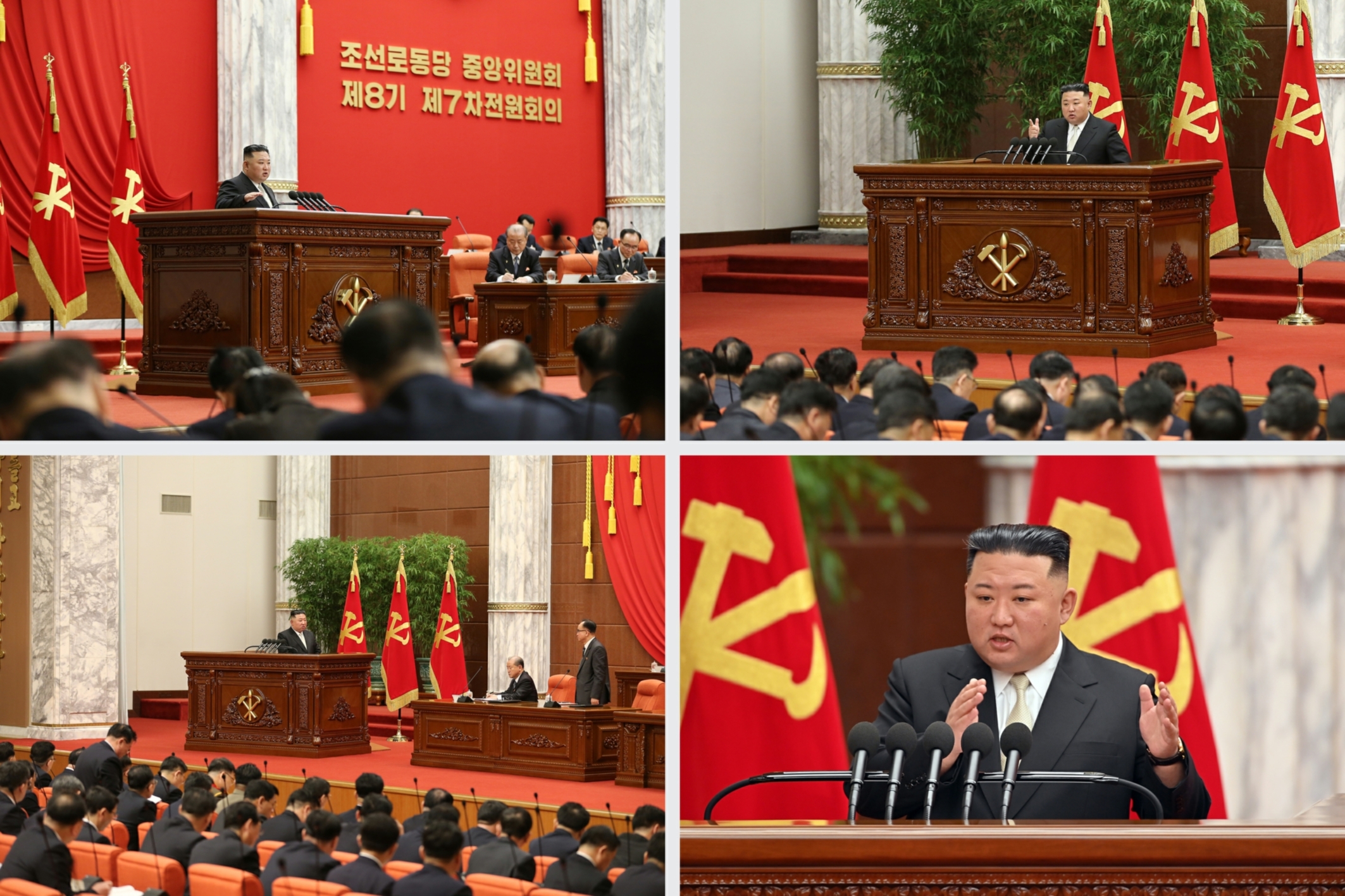
He said that “for each sector and unit to give mental and moral, material and technical support and assistance to the rural communities should be a trend of whole society” and mentioned “once again the important principles and ways for bringing about a fundamental change in the development of agriculture.” KJU expressed his “expectation that all the officials including members of the leadership body of the Party Central Committee would creditably perform their duties as the banner of struggle and standard-bearers of advance in overcoming the obstacles lying on the way of socialist construction, deeply aware of the great trust of the people.”
Kim Jong Un formally closed the plenary meeting which according to state media “will serve as a milestone of a new leap which is of epochal significance in ushering in a great new rapid development of the socialist countryside, a heyday of self-supporting economic development, and as an important political occasion of markedly elating the enthusiasm and vigor for struggle of all the people indomitably advancing with confidence in the validity of the socialist cause and our potentiality and spirit.”

